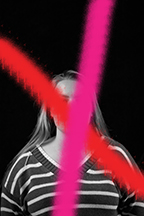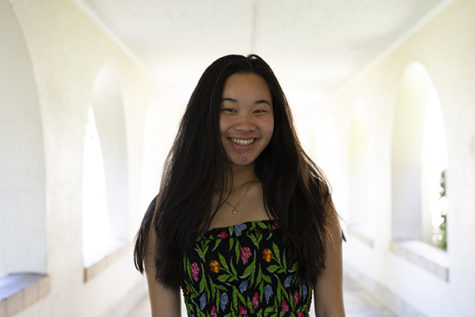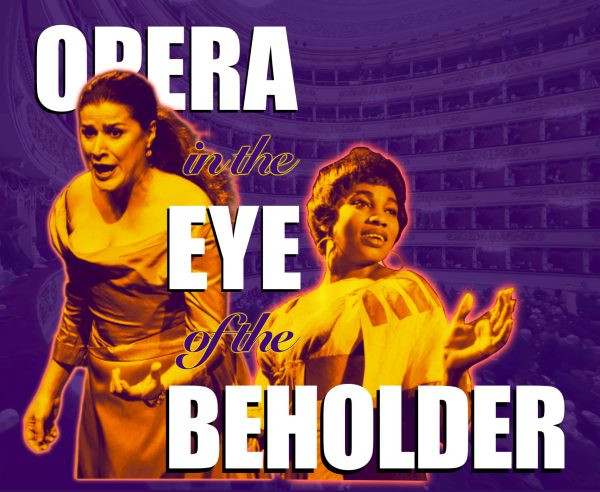Under the Watchful Eye
With the recent influx of scandals, the reach of public shaming is becoming more widespread. In what situations can this hate be justified?

Face it, there have been instances in your life that you wish you could erase. These shameful memories, however, are harder to neglect when the pervasive media leaves little room for sheepish apologies in the relentless court of public opinion. Some view online shaming as a form of public participation in correcting injustice, and they believe that the actions of those who are targeted warrant the hate thrown their way. Others argue that the rise of social media has created a toxic platform for hateful extremism, sometimes making the damage done to a target’s life irreversible. While the question of justification is one of deep complexity, the debate will continue to shape the trajectory of public shaming and its ever-evolving role in an increasingly media-obsessed society.
Patient Zero

Forced into the public spotlight at the age of 24, Monica Lewinsky has had first-hand experiences with the impacts of public shaming. In 1998, news of an intimate relationship between her and President Bill Clinton spread, causing Lewinsky to quickly become the center of a political storm. Her privacy instantly vanished, pushing her further into the eye of the hurricane and causing every aspect of her life to be placed under a microscope. With the constant attention to the scandal on TV and in newspapers, the public seemed to disregard the feelings of the person behind the infamous name, leading to a significant emotional toll on Lewinsky. In an interview 21 years later with John Oliver on “Last Week Tonight,” Lewinsky reflects upon her state of mind in the midst of it all. “It was an avalanche of pain and humiliation,” Lewinsky said. “At 24 years old, it was really hard to hold onto a shred of dignity or self-esteem when you’re the bud of so many jokes.” Lewinsky suffered significant repercussions from the shame that the public forced upon her, including having trouble finding a source of steady income after the scandal due to the negative associations with her name. “I couldn’t get a job,” Lewinsky said to Oliver. “There was this wide range of not being able to support myself and also have a purpose, which is equally important.” Some believe that these consequences surrounding both her mental state and professional life are not justified as Lewinsky had not placed herself in the public eye prior to the scandal.
Since the scandal, Lewinsky and her life continue to be widely publicized. Recently, she has used her platform to take a stance on a variety of issues. Launching a campaign in 2014, Lewinsky spoke out against cyberbullying to combat the hate and pain she endured during and after the scandal. She also took partin the #MeToo movement, actively condemning sexual assault and harassment. Lewinsky has since used the momentum from the scandal as a means to speak out about important issues. “If I have learned anything it is that you cannot run away from who you are or from how you’ve been shaped by your experiences,” Lewinsky said. “Instead, you must integrate your past and present.”
The Experiment
Alexis Stone, a makeup and drag artist, decided to create a social experiment based on the concept of public shaming. After going through various plastic surgery procedures in the past, he recalled the harsh remarks people made and decided to run with the “botched monster” portrayal that was given to him. In October of 2018, Stone shared a photo of himself covered in bruises, portraying himself to have recently undergone a heavy cosmetic plastic surgery transformation. In reality, he had put prosthetics on his face to make it appear puffier and scarred. Along with this photo, he posted a reveal video on Youtube of his “new” face that was drastically different and resembled socialite Jocelyn Wildenstein and the late comedian Joan Rivers.

He immediately became a target for shame and hatred from fans and criticizers with comments about how he ruined his life and received many death threats. For someone who had seemingly only affected themselves, he received a tremendous amount of criticism for changing his appearance. According to Stone, comments left on his Youtube and Instagram accounts, including “Oh, just do us a favor and kill yourself,” “You’re deluded, you can barely breathe” and “‘you’re a monster,” had a deep impact on his mental health. “I’ve been called crazy. I’ve been called an addict. I’ve been called botched. I’m told on every single day that I’ve ruined my face … It’s just had such a crippling effect.” Stone said. Losing a relationship, finances and various brand deals throughout the experiment had opened his life to public shaming as he experienced how it can severely alter someone’s life.
The Ex-Best Friend
Longtime best friend of reality star Kylie Jenner and social media icon, Jordyn Woods has recently found herself under the spotlight after allegedly having intimate relations with basketball player Tristan Thompson. Thompson, until recently, was in a serious relationship with Jenner’s half-sister, Khloe Kardashian, with whom he shares a daughter.

Once word of their purported affair got out, many were outraged and criticized her on various media outlets. “Every time you refresh the page it’s another person bullying me or wishing death on me or telling me something like ‘your father deserved to die,’” Woods said. She has been getting vulgar comments such as “homewrecker,” “you’re a disgrace,” “now it’s time for your life to fall apart” and many more. In an interview with the “Red Table Topic,” she recalled not being able to eat for days, look at her phone or get out of bed once the media had found out about her relations with Thompson. Woods also mentioned how the scandal has not only affected her daily life but those of her family as well—her younger brother could not attend school, and her mother could not go out in public without fear of harassment from the press and the general public.
Although this focus on her has harmed her reputation, some argue that this has improved her career due to the amount of PR she has received from the scandal. About a week after the scandal occurred, Woods Instagram follower count boosted up from 8 to 8.9 million and ever since the incident became public, she has begun planning trips to London, the Middle East and Dubai to secure large financial deals with a marketing agent. From being on countless entertainment-related shows to receiving many business deals, her newfound popularity has expanded her career opportunities and aided her in becoming more well-known as she achieved notoriety.
Money Matters
In order to lessen the inherent randomization of college admissions, some decided to take matters into their own hands this past March. Across six states, fifty people, including top celebrities, high profile CEOs, college coaches and standardized test administrators, were indicted for taking part in the U.S. college entry fraud which illegally admitted unqualified students into elite universities.
One of the most well-known people involved in the scandal was Olivia Jade Giannulli — the daughter of actress Lori Loughlin — whose admission to the University of Southern California was guaranteed after her mother allegedly paid $500,000 in bribes to the school.
Before the scandal, Giannulli was a successful social media influencer, with close to two million Youtube subscribers, over one million Instagram followers and a number of brand deals from companies such as Amazon Prime, Sephora and Marc Jacobs. As a young and thriving entrepreneur, Giannulli was regarded as a role model for many of her younger fans. Consequently, her presence in the public eye prior to the admission scandal only made the ramifications more severe for Giannulli.
After receiving an extreme amount of hate and judgment regarding her involvement in the scandal on her Instagram and Youtube accounts, she disabled comments on her most recent posts on both sites. A remaining comment left by a user on her Instagram page reads, “Dumb offspring of rich parents. Can’t earn s**t without mommy & daddy $.” Another reads, “You deserve to be in jail. F**k you and your whole family. I can’t wait to see what happens to you when karma comes rolling towards.”
Soon after her mother was indicted, Giannulli’s newly released makeup palette and clothing line were discontinued. Many companies with which she had previously had brand deals publicly announced that they would no longer be working with her in the future. “Drop out, you derailed another students life because you feel like as a wealthy and famous person, you are more entitled to the things other people actually work for,” one user said.

Although Giannulli’s fan-base has greatly diminished, many devoted fans remain by her side, believing whole-heartedly that she was unaware of the crime her mom committed and therefore doesn’t deserve the backlash she is currently receiving. One user said, “I’m sorry all these people are bullying you. It sounds like you just want to do YouTube and your mom roped you into this.” Others felt that people who were leaving negative comments on her social media accounts were being hypocritical. “What she did was bad, but you guys need to stop the bullying, it’s not cool,” one user said.
While many stand by their opinion that Giannulli embodies the spoiled, upper-class elite who continue to rob opportunities from hard-working, lower-class individuals, others rationalize that she is merely a nineteen-year-old girl who made a mistake and deserves a shot at redemption. Whether or not people choose to forgive her for her actions, it’s likely that the shaming and criticism she has received will leave a mark on her forever.









